#Scottish Parliament Elections 2021
Text
Courtier demanded assurance king could not be prosecuted under new Welsh law
Palace official secured assurance under archaic custom that requires UK parliaments to get consent of monarch to draft bills
Rob Evans, Severin Carrell and David Pegg
Thu 11 Apr 2024 06.00 CESTShare
Royal courtiers privately put pressure on the Welsh government to ensure that King Charles could not be prosecuted for rural crimes under a new law that ministers had drawn up, documents reveal.
The elected minister in the Welsh government who is its chief legal adviser was “not happy” that the king was to be given the special exemption from prosecution but agreed to it last year.
A Buckingham Palace official phoned the Welsh government to secure the assurance under an archaic custom that requires UK parliaments to obtain the consent of the monarch to draft bills before they can be implemented.
Under the mechanism, ministers notify the royal family of specific clauses in draft laws that may affect their personal wealth, their private property or their public functions. The ministers ask the monarch to approve the laws before they can be passed.
Investigations by the Guardian have shown that the late queen used her privileged access to draft legislation to secure changes that protected her private interests or reflected her opinions. In one recent example, her lawyers lobbied Scottish ministers in 2021 to change a draft law to exempt her private land from a major initiative to cut carbon emissions.
The use of the consent mechanism has been criticised as “undemocratic”. It has been in force in Westminster since the 1700s and has been extended to the Scottish and Welsh parliaments.
During the queen’s 70-year reign, she vetted more than 1,000 draft laws before they were approved by elected politicians. Those included bills that affected the her personal property such as her privately owned estates in Balmoral and Sandringham.
The mechanism has continued seamlessly into the reign of Charles. Ministers in Westminster, Scotland and Wales have been required to obtain his consent to 20 laws since he came to the throne in September 2022.
Buckingham Palace refused to say whether the king had asked for any changes to these laws before approving them. One was a bill that was formulated by the Welsh government to reform agricultural practices.
On 1 June last year, the Welsh government noted in an internal memo that its lawyers “had been contacted by Buckingham Palace officials who have sought an assurance that Welsh ministers will take into account conventions regarding prosecuting the crown when making regulations under this bill”.
In an email the following day, Welsh officials noted that Mick Antoniw, the Welsh government’s counsel general – the equivalent of the attorney general in Westminster – was “not happy with the exclusion”. However, he “recognises the ongoing convention and therefore” agreed to it.
This was a reference to an ill-defined convention under which criminal and civil proceedings cannot be brought against the monarch as head of state. The monarch has been given personal immunity from swathes of British law, ranging from animal welfare to workers’ rights.
However, an investigation by the Guardian has previously highlighted the extent to which this practice gives the monarch immunity for his conduct as a private citizen, affording protection to the king’s privately owned assets and estates.
More than 30 laws stipulate, for example, that police are barred from entering the privately owned Balmoral and Sandringham estates without the king’s permission to investigate possible crimes, including wildlife offences and environmental pollution. No other private landowner in the country is given such legal immunity.
In the case of last year’s Agriculture (Wales) Act, the monarch was exempted from regulations relating to the marketing of agricultural products, the disposal of carcasses and the disclosure of information to the Welsh state. Police are also unable to gain automatic entry to the king’s private property portfolio under that part of the act.skip past newsletter promotion
Do you have information about this story? Email [email protected], or (using a non-work phone) use Signal or WhatsApp to message +44 7721 857348.
According to Buckingham Palace, the royal household rang the Welsh government to ensure that “as a matter of legal correctness” the monarch could not be prosecuted under the act.
A palace spokesperson said the convention had to be maintained as the draft act contained a particular type of legislation that would not rule out the possibility of a prosecution.
The spokesperson added: “At no point were any objections raised by the Welsh government, either formally or informally.”
A Welsh government spokesperson said: “The immunity of the monarch from prosecution is a long-established principle.” They declined to comment further.
Charles approved the bill on 20 June 2023, according to the documents released under the Freedom of Information Act. The documents do not specify which of his properties would be affected by this act.
Other laws which have been screened by Charles under the consent mechanism include legislation relating to the rents that UK landowners can charge mobile phone companies for putting up masts on their land and the management of Scottish private trusts. Trusts are widely used by the Windsors and can help the rich to shield their assets from public scrutiny or tax.
Charles gave his permission to a Scottish act that froze the rents for tenants in private properties and a Westminster act that required landlords to produce an electrical certificate in their rented homes. Charles rents out more than 300 homes across his Balmoral and Sandringham estates.
The palace spokesperson said: “King’s consent is a parliamentary process and His Majesty has granted consent on each occasion it has been requested by government.”
4 notes
·
View notes
Photo
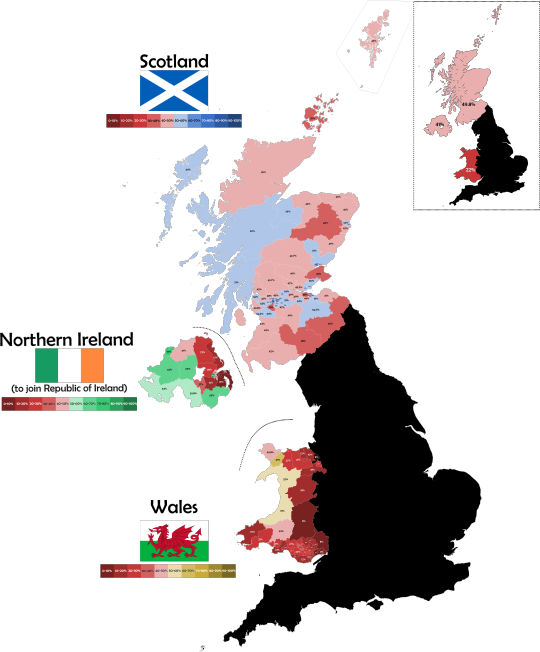
Support for separatist parties in the United Kingdom.
by u/MapsnStats
Map denotes support for separatist politicians in the United Kingdom for elections held between 2021 and 2022.
This encompasses elections to the Northern Irish Assembly, Welsh Senedd and Scottish Parliament.
In areas highlighted in blue in Scotland and in yellow in Wales, a majority of voters voted for candidates in favour of independence from the United Kingdom.
In Northern Ireland, the green areas denote areas where politicians in favour of Northern Ireland leaving the UK to join the Republic of Ireland won a majority of votes.
Areas marked red denote areas of Scotland, Wales and Northern Ireland where separatist politicians failed to win a majority of votes cast.
Results for Scotland and Wales were calculated by taking an average of constituency and regional list ballot results for each constituency.
Note that in terms of geographic spread, support for independence in Scotland is generally more popular in the more urbanised central belt of the country around the City of Glasgow, and less popular in rural areas which cover a larger portion of the country's land mass.
Conversely, in Northern Ireland support for unification is stronger in rural border communities and weaker in the urbanised eastern side of the province around the City of Belfast.
It goes without saying that this does not necessarily indicate individual's views on the issue of Scottish Independence/Welsh Independence/Irish Unification.
An average of the most recent 3 opinion polls in each of the respective UK nations suggests support for independence is as follows (with Undecideds removed):
Scotland, 52% Against independence, 48% in favour
Northern Ireland, 60% Against unification with Ireland, 40% in favour
Wales, 68% Against independence, 32% in favour
England, 64% Against independence, 36% in favour
194 notes
·
View notes
Text
MPs and peers on the all-party parliamentary group on democracy and the constitution will publish a report on Monday saying the rules caused more harm than they prevented when they came into force in May, and will call for changes, including the acceptance of a greater range of ID documents.
The report was co-authored by Sir Robert Buckland, who was the justice secretary in 2021 when the bill to introduce the rules was first launched in parliament, and who subsequently helped vote them through.
The committee is chaired by the Scottish National party MP John Nicolson and also includes Labour MPs and peers.
The report, which has been seen by the Guardian, says: “The current voter-ID system is, as it stands, a ‘poisoned cure’ in that it disenfranchises more electors than it protects.”
The authors found that “polling clerks are more likely to fail to compare a photo ID to the person presenting that document if the person is of a different ethnicity”.
They highlighted the case of Andrea Barrett, who is immunocompromised and was blocked from entering a polling station after refusing to remove her mask for an identification check.
The report says: “Their decision in that instance was … clearly discriminatory (and potentially unlawful) because they denied Andrea Barrett the right to cast a ballot purely on the basis of circumstances which arose as a direct result of a disability.”
2 notes
·
View notes
Text
Another example of why the trans rights movement is a movement for violent men
The London Branch of the Scottish National Party (SNP) has hired a radical trans activist as an Equalities Officer, prompting backlash and concern from feminists who have uncovered violent statements he has made against women critical of gender ideology.
Cameron Downing, 23, was quietly elected as an Equalities Officer for the SNP’s London Branch at the party’s most recent Annual General Meeting. Downing also works as the Media and Communications Officer for the party’s official LGBTQ group — Out for Independence, where he previously served as the gender identity and expression officer.
But disturbing tweets have emerged of Downing calling for physical violence against “TERFs,” an acronym which stands for “trans exclusionary radical feminist.” TERF is considered by many to be a derogatory term, and has often been used to justify violence against women who oppose gender ideology.
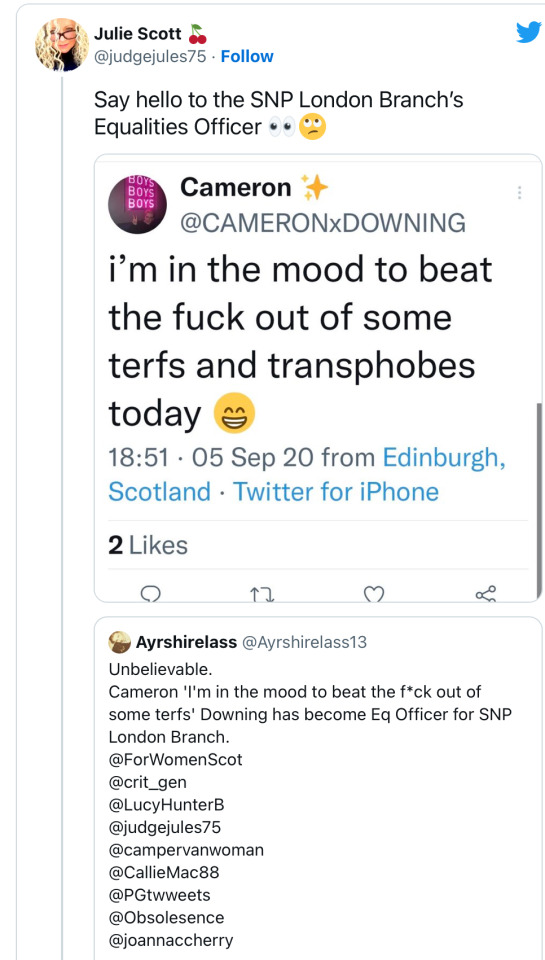

On Friday, two tweets Downing made in 2020 began to circulate, in which he wrote he was “in the mood to beat the fuck out of some TERFs and transphobes.” In another, he proclaimed he “fucking hate[d]” women who advocate for single-sex spaces.
As the screenshots of the two posts picked up attention, Downing rapidly locked down his social media accounts, preventing them from being searched further.
In light of Downing’s hiring, Scottish women on social media began expressing their disappointment in the SNP, with many stating the party had lost their votes due to their increased acceptance of gender ideology over the last few years.
“The SNP seem to actively want mindless thugs in their ranks – as long as it is only women they want to hurt,” For Women Scotland tweeted in response to the news.
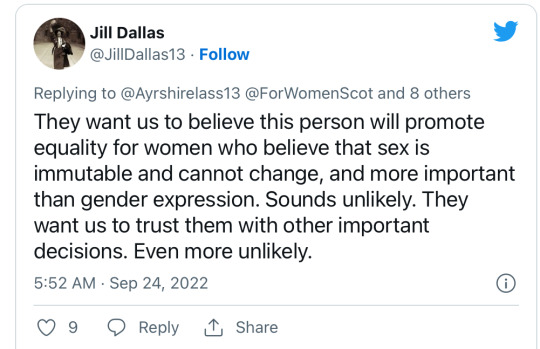
“I am a party member. I will not turn up to campaign or even vote in any election until the party seriously tackles its problem with misogyny. I will not vote for a party that tolerates speech encouraging violence against women from its officers,” wrote Twitter user @rampitchfork.
Even within the SNP, some who have spoken up against gender self-identification laws have found themselves mistreated by the party.
SNP Member of Parliament Joanna Cherry has been a vocal proponent of women’s sex-based rights and has expressed disapproval of many elements of gender ideology. Cherry has said that as a result of her beliefs, she was “cancelled” by her party, and that she has been subjected to harassment and abuse campaigns on social media for condemning self-identification laws.
At the LGB Alliance’s first annual conference in 2021, Cherry spoke about the death threats she received for speaking out for women’s sex based rights. She also described having received a corrective rape threat which, after a police investigation, she learned originated from a fellow SNP member.
“Essentially threatening me with corrective rape, and it turned out that these came from somebody who was actually a member of the SNP. This man was prosecuted successfully and I find it really quite horrifying and troubling that nobody in my political party has felt able to publicly condemn the rape threats that were made against me,” Cherry stated in her speech at the conference.
Cherry said that she has received private messages of support from fellow party members, but that they have expressed fear about going public with their shared concerns.
Downing is not the first person the SNP has employed who was later found to have expressed contempt for those who advocate for women’s sex-based rights.
Earlier this year, the SNP came under fire after having hiring a trans-identified male, Alexandria Adamson, as their Learning Disabilities Officer.
Shortly after his appointment, video began circulating of Adamson screaming repeatedly at a woman during a demonstration in Edinburgh in September of 2021.
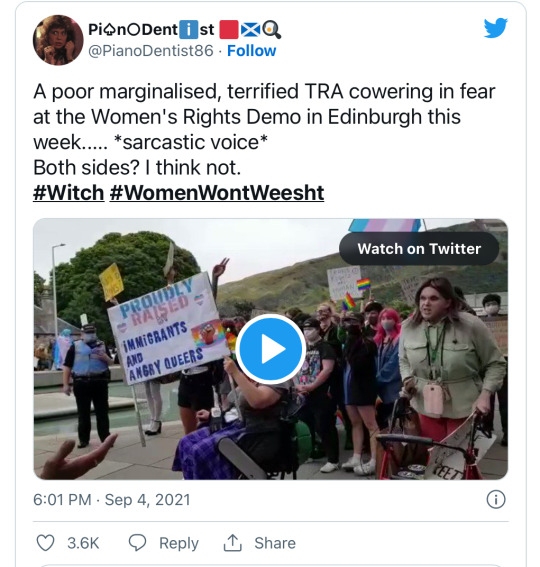
Female protesters had gathered to demand the SNP and the Scottish Green Party protect women’s sex based rights in law, and were carrying signs reading “save our single-sex spaces” and “sex not gender.” Adamson, while using a walker, was caught on film abruptly charging at one of the women and hurling slurs in her face.
Shortly after his hiring was announced, internet sleuths began searching through Adamson’s Twitter account and found a number of disturbing posts. Adamson referred to women’s rights activists as “evil TERFs,” and had called for current-Prime Minister Liz Truss a “demon” and a “bitch” who had to be “put to death.”
Adamson’s role within the SNP was reportedly suspended following additional threats he issued at Tory leadership candidate Rishi Sunak.
Earlier this month, SNP Member of Parliament John Nicolson similarly drew ire for claiming that anyone could “declare” themselves a lesbian.
Nicolson made the homophobic remark during a tribunal in which the LGB Alliance is being forced to defend its charity status in light of a challenge from trans activist charity Mermaids.
The Scottish National Party officially supports a bill which would outline changes to the Gender Recognition Act in Scotland, including removing the requirement for an individual to have a diagnosis of gender dysphoria prior to being able to change the sex on their birth certificate. The bill would also allow minors as young as 16 to make changes to their legal documents.
By Shay Woulahan Shay is a writer and social media content creator for Reduxx. She is a proud lesbian activist and feminist who lives in Northern Ireland with her partner and their four-legged, fluffy friends.
#UK#Scotland#Scottish National Party (SNP)#Cameron Downing tweeting about harming women he disagrees with#Out for Independence#For Women Scotland
15 notes
·
View notes
Text
Nicola Sturgeon, Scotland’s most powerful political figure, announced her intention to resign as first minister, the head of the country’s devolved administration. It’s the end of an era in Scotland, where Sturgeon dominated the political scene for nearly a decade. Her party, the left-populist Scottish National Party (SNP), now not only holds power in Scotland’s Parliament but holds almost all of the Scottish seats in the U.K. Parliament in Westminster. Sturgeon had transcended regional leadership to take a starring role on the U.K.-wide political stage—and may have even bigger ambitions for her post-political career.
Yet the main goal of Sturgeon’s time in power has been the secession of Scotland from the rest of the United Kingdom, and in this she has decidedly failed. Taking office as head of the SNP in 2014 after a decisive independence referendum loss, Sturgeon failed to move the ball forward no matter what she tried. Although the party was keen to dub local, regional, and national elections as “de facto referendums,” no second vote was ever called. A recent bid to force the issue ended with defeat in the United Kingdom’s Supreme Court, which found that a new referendum run only under Scotland’s devolved powers would be unconstitutional.
Sturgeon was a supreme communicator, and her public relations team—run out of the first minister’s official residence, Bute House—effectively outmuscled all Scottish opposition. SNP spinners outnumbered the journalists sent by the national broadcaster, the BBC, to cover Scottish politics; and Sturgeon cannily used press conferences during times of crisis, including the COVID-19 pandemic, to undermine the U.K. government’s claims of national unanimity. She would either preempt British announcements, sometimes only an hour or so earlier, or publicly disagree with them—all in an always successful bid to capture headlines.
Sturgeon’s opponents grumbled at these efforts—they called them stunts. But they always worked, and she never lost an election as SNP leader.
But Sturgeon’s tenure exposed many of the shortcomings of nationalist and populist politicians after they’ve taken power. They campaign largely on the basis of a single slogan and policy. And when they return again and again to office—especially if they cannot enact their chosen policy or slogan—they begin to struggle and suffer. Sturgeon wished dearly to be Scotland’s first leader after the country seceded from the United Kingdom.
Critics alleged that she had very few plans to govern Scotland as a devolved leader, had little interest in doing so, and felt that she was an international figure deserving of a global platform accorded to a head of state or government.
As an independence advocate, Sturgeon found herself confronting long-term domestic problems that could not be solved by another referendum on independence. Scotland is a less economically productive part of the U.K. than England is; it has a worse-run health service; and its economy grows, on average, less strongly. Fewer people immigrate to Scotland than to the rest of the United Kingdom.
Its death rate by drug overdose is significantly higher than not only the rest of the United Kingdom but also the rest of Europe as a whole. In 2021, 1,330 people died of drug use in Scotland. The drug death rate in Scotland is around 3.7 times the rate in the U.K. as a whole. The European Monitoring Centre for Drugs and Drug Addiction is cautious about comparing like with like, but it claims that Scotland’s drug death rate is, as measured, the worst in Europe.
These intractable problems—including in education, something Sturgeon insisted she be judged on—proved the lack of adaptability among nationalist leadership. When problems arose, a party whose members increasingly only agreed on a few pet issues—independence being one—sometimes struggled to unite around a prospectus.
The argument that most directly led to Sturgeon’s downfall was a social issue: self-identification and the legal changing of gender. Sturgeon’s party at Westminster had already seen a split when some of its members joined a new party led by Sturgeon’s immediate predecessor, Alex Salmond, who had become her hated rival in the intervening years. This issue threatened further dissension. The first minister did not change her mind. The Scottish Parliament, with an SNP and Scottish Green Party majority, passed the bill allowing self-identification.
When her gender policy ran into difficulty, first when the bill was vetoed by the Scotland secretary—the cabinet minister in Westminster responsible for Scotland and invested with broadly unused constitutional power to return devolved laws—and later when a scandal erupted over the sending of a transgender woman prisoner convicted of raping women to a woman’s prison, Sturgeon dug in.
She painted her critics as not feminists and unfeeling. She attempted to suggest that people who committed sexual violence were neither men nor women but “rapists”—almost as if it were a third gender—and when she failed to thread this needle effectively, Sturgeon blocked all movement of prisoners assigned male at birth to female prisons following an audit.
By this time, the public and the SNP were mutinous. Sturgeon had disregarded her critics internally and externally and bulldozed ahead, assuming that she could sweep aside any criticism by calling those who disagreed with her bigoted and retrograde. This did not work, and for many people in her party, it represented the failure of what had been a sure political touch.
The SNP has been in government for more than a decade. It faces elections to the devolved Scottish Parliament in a few months. If the first minister powered ahead with policies like this in the teeth of a divided public—only to reverse course with a screech of her tires, SNP insiders thought—a leader who was once a great asset could swiftly become an electoral drag.
In her farewell speech yesterday, Sturgeon described running out of energy. “Giving absolutely everything of yourself to this job is the only way to do it. The country deserves nothing less,” she said.
“But in truth, that can only be done by anyone for so long. For me, it is now in danger of becoming too long. The First Minister is never off duty, particularly in this day and age. There is virtually no privacy.”
At a time of great political heat, she said: “The nature and form of modern political discourse means that there is a much greater intensity—dare I say it—brutality to life as a politician than in years gone by. All in all, and actually for a long time without being apparent, it takes its toll on you and on those around you.”
Sturgeon has long been suggested as a global envoy or special rapporteur. She has always had global ambitions. Some reports say she wanted to be a U.N. ambassador for women. In any case, global campaigning and advisory roles are likely in her future. She will not retire.
Sturgeon has proved to be the most electorally successful SNP leader. Beginning as a gray figure behind the colorful Salmond, she unexpectedly become Scotland’s most famous politician. Yet eight years is a long time to govern on one policy and one slogan—especially one that remains perpetually in the future.
2 notes
·
View notes
Text
Spas run-off changes will make it safer but more challenging | RaceFans Round-up
In the round-up: Kevin Magnussen has a positive impression of the revisions made to Spa-Francorchamps since last year.
In brief
Magnussen praises Spa-Francorchamps changes
Although the circuit revisions to Spa-Francorchamps were not all made with Formula 1 directly in mind, some of the changes have captured the attention and praise of the drivers ahead of their first race at the track since the farcical 2021 Belgian Grand Prix.
Haas’s Magnussen, a winner at the track three times in the junior categories, thinks a different challenge will be posed to drivers by the adjustments to the circuit – including newly laid asphalt and new gravel traps – this weekend.
“I think it’s good to have gravel instead of Tarmac run-off as I feel it’s safer in some ways and it makes it easier in terms of track limits,” he said. “It makes it simpler and also a little more challenging as pushing the limits will have a bigger risk, which is a good thing I think.”
Schumacher’s race-winning Ferrari chassis sells for £5.26 million
The Ferrari F300 which Michael Schumacher drove to victory in the Canadian, French, British and Italian grands prix in 1998 was sold by RM Sotheby’s for $6.22 million (£5.26m) at its Monterey auction last weekend.
Chassis number 187 is the only one driven by Schumacher that was used for more than three races and won all of them. The new owner of the car not only has a highly elusive vehicle in their possession but will also get an exclusive visit to the ICM Paris Brain Institute and the Richard Mille Swiss watchmaking facilities in Les Breuleux, Switzerland as part of their purchase.
Girls on Track Rising Stars finalists named
The FIA Women in Motorsport Commission’s Girls on Track Rising Stars programme has completed its summer training camps at Paul Ricard and come to a decision on which eighth drivers will progress to the final at Ferrari’s Maranello headquarters in November.
Winfield Racing School ran the training camp, with sessions in Formula 4 cars and karts for the ‘Senior’ and ‘Junior’ drivers respectively. Combined with off-track assessments, the group was whittled down to four finalists in each category.
The ‘Senior’ finalists are F4 racers Chloe Grant and Aurelian Nobels, time attack regular Alice Buckley and junior karter Chloe Chong. They are competing for a paid-for seat in the Italian F4 championship next year and the chance to become a Ferrari junior driver. The inaugural winner Maya Weug is currently in her second season racing in F4 with Ferrari’s support.
The ‘Junior’ finalists all come from junior karting and are Lisa Billard, Zoe Florescu Potolea, Mathilda Paatz and Sara Mastui. A seat in an international karting championship in 2023, with possible Ferrari funding, is up for grabs for this group.
FIA announces new director of communications and public affairs
A former political chief of staff will join the FIA this October as its new director of communications and public affairs.
Luke Skipper comes into the role having previously been the Scottish National Party’s chief of staff in the UK parliament through its recent national election successes and in the private sector he was director of public affairs for major communications company Weber Shandwick which has motorsport connections via its work with the now defunct A1GP series.
His FIA role will include a focus on growing “social media and digital engagement” in motorsport as well as using his political expertise to ‘enhance the FIA’s lobbying capability’.
Advert | Become a RaceFans supporter and go ad-free
Advert | Become a RaceFans supporter and go ad-free
Happy birthday!
Happy birthday to Andrew White, Hlahalasas, Lord Stig and Mcl88Asap!
On this day in motorsport
Schumacher led Fisichella home at a soaking Spa today in 1997
via RaceFans - Independent Motorsport Coverage https://www.racefans.net
1 note
·
View note
Text
Rishi Sunak has been urged to push through new rules to block anyone convicted of a sexual offence from standing to be an MP before the next election.At least six MPs have lost their seats because of alleged sexual misconduct since the 2019 general election, and 10 MPs have been suspended from their parties pending investigations.
While all political parties have their own procedures for vetting MP hopefuls, politicians and unions believe formal rules to block relevant candidates will make it easier to “weed out the bad apples”.A former minister said: “I can’t believe this has to become formal policy, but history shows how bad the working environment in Westminster has become for this to be needed. Working standards for people on the estate are at a pretty low bar.”The Prospect union said Sunak should introduce the measures before the next election, as well as accelerating the timetable in risk-based exclusion measures. “If they won’t, Labour should do so as a matter of urgency if they win the next general election,” said Mike Clancy, general secretary of the union.
It comes as the Scottish parliament is expected to vote through rules to bar anyone convicted of a sexual offence and subject to a restriction order from standing to be an MSP or as a councillor.Ministers in Edinburgh published plans last year to cover council elections and said they believed it was logical to extend these controls to candidates for Holyrood, which has 129 MSPs, at the same time.Like councillors, MSPs were in a position of power and authority and often dealt with vulnerable constituents, an official briefing paper said. The controls are due to be included in the new Scottish elections (representation and reform) bill introduced last month.“The roots of this move are grounded in both protecting the public in personal encounters with elected representatives and also a more general reputational concern based on trust and confidence,” the briefing paper said.While no MSP at Holyrood has been jailed for sexual offences, and none have been prosecuted, there have been a series of controversies over sexual misconduct by MSPs, with some losing ministerial posts.Scottish ministers point out the current rules allow people to stand for Holyrood if they were jailed for less than a year: that could allow some sex offenders to do so. The rules for council elections are tougher, barring anyone with a sentence of three months or greater standing for election.A ban on sex offenders standing in council elections, including mayoral elections, came into force across England in 2022 and Wales in 2021, when a similar ban on sex offenders standing for the Senedd in Cardiff came into force.There is no specific bar on sex offenders standing for councils in Northern Ireland, other than a blanket ban on anyone with recent prison sentences of three months or more. No specific bar is in place for Stormont elections as its elections are governed by Westminster and are similar to those for the Commons.
In December, the House of Commons commission published proposals for a “risk-based exclusion policy” to bar MPs who have been arrested for violent or sexual offences from coming on to the parliamentary estate.But there is no policy that stops anyone convicted of a sexual offence from becoming an MP.Sandy Brindley, the chief executive of Rape Crisis Scotland, said: “Constituents should have the same protections in relation to MPs as they would any other elected representative, across the whole of the UK. It is the least that constituents should be able to expect, but it’s quite astonishing it isn’t in place already.”The Liberal Democrats said they would “carefully consider proposals in this area, including bringing the rules for parliamentary candidates in line with those that exist already for those standing to be local councillors”.Labour has not clarified if it would roll out such measures in government, if the Conservatives fail to do so. But Lucy Powell, the shadow Commons leader, said “the government should stop dragging thei...

View On WordPress
0 notes
Text
what level of political engagement or lack thereof constitutes dysfunction
like I generally feel that people should be able to engage with politics to the extent that they wish to and no further, but there's a point where on a national and personal level, lack of engagement with politics suggests problems
like with there being a (UK) general election this year I'm looking at past election turnouts
2019 we had a 67.3% turnout, though that ranged between 80.3% at its highest and 49.3% at its lowest
I've not looked at a full breakdown for other years, but the average hasn't risen above 70% since '97
the Senedd elections are worse with the turnout not being above 50% in the last two decades, and it briefly dropped below 40% in 2003
the Scottish parliament elections apparently had a high of 63.2 in 2021, but looks to have mostly hovered around 50% since '99
and even the great Brexit referendum only had a turnout of 72.2%
just over a third of those eligible to vote didn't
now I'm not the most engaged in politics, or at least party politics, outside of voting, which I'll do at every chance I get
and I get that election turnout isn't necessarily the best metric for political engagement but I mean all that seems depressingly low
1 note
·
View note
Text
From Pakistan To Scotland: Meet Humza Yousaf, Scotland’s 37-Year-Old New Leader
Humza Yousaf, a Pakistan-origin leader and practising Muslim, has made history in Scotland after being elected as the head of the Scottish National Party. After winning a close-fought contest, the 37-year-old now has mounting challenges ahead of him
— FP Explainers | March 28, 2023

Hamza Yusuf, 37, of Pakistan Origin, Became Scotland’s First Muslim immigrant Minister. Yusuf hails From District Khanewal Tensil Mian Channu, Pakistan.
From Pakistan to Scotland. It’s a long road between the two nations but on Monday that distance was gapped when Scottish nationalists picked Humza Yousaf to be the country’s next leader.
The current health secretary edged out competition from Kate Forbes by a narrow margin and against Ash Regan to become the head of the Scottish National Party (SNP), after former First Minister Nicola Sturgeon tendered her resignation from the position in mid-February.
In winning, he has become Scotland’s first Muslim leader. The next step will be for him to be formally nominated to be the First Minister by the Scottish Parliament — a vote that is due on Tuesday in Holyrood. Yousaf will then be officially sworn in at the Court of Session, Scotland’s supreme civil court, on Wednesday.
Below we look at his career in politics to date and his beliefs.
Early life and political career
“As immigrants of this country who knew barely a word of English, they could not have imagined in their wildest dreams that their grandson would one day be on the cusp of being the next First Minister of Scotland,” Yousaf said after he won the vote on Monday.
And it’s true.
Though Yousaf was born in Glasgow, Scotland in 1985, his grandparents had moved to the country back in 1962 from Mian Channu in Punjab, Pakistan. Yousaf’s mother, also of South Asian descent, emigrated to Scotland from Kenya.
He was privately educated at Hutchesons’ Grammar School in Glasgow and studied politics at the University of Glasgow. After his studies, Yousaf briefly worked in a call centre before becoming a parliamentary assistant to SNP MSP Bashir Ahmad and later an aide to Alex Salmond.
In 2011, a then slightly more than 25-year-old Yousaf made history by becoming the youngest-ever member of Parliament. And since then, he has only climbed the political ladder and gaining in reputation.
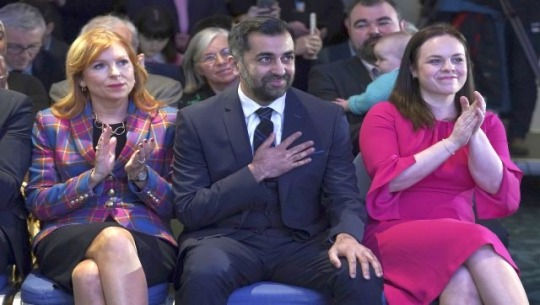
Humza Yousaf edged out the win against candidates Ash Regan (left) and Kate Forbes after a bruising five-week contest that exposed deep fractures within the pro-independence movement. AP
Yousaf became the first Scottish Asian and Muslim to be appointed as minister to the Scottish Government in 2012 when then First Minister Alex Salmond appointed him as the Minister for External Affairs and International Development, responsible for external affairs, fair trade policy and diaspora. When Sturgeon took over from Salmond, he continued his junior ministership.
He then became justice secretary in 2018 and introduced the Hate Crime and Public Order bill which made “stirring up hatred” on religion, sexual orientation, age, disability and transgender identities an offence.
Yousaf has also served as transport minister, and international development minister, before becoming the health secretary in 2021.
However, it’s not been all smooth sailing for him. His political performance has been far from stellar. As transport minister in 2016, he was fined £300 (Rs 30,370) for driving a friend’s car without insurance.
He also faced criticism for the performance of ScotRail after Abellio took over the contract to run the rail franchise, which ultimately led to it being nationalised.
As health secretary, he was criticised for the long hospital waiting times, especially during the COVID-19 pandemic. However, he had defended himself, saying the problem wasn’t unique to Scotland and, in fact, the country was the only one in the UK to avoid strikes by NHS (National Health Service) staff.

Humza Yousaf has been a close ally of former First Minister Nicola Sturgeon and was seen by many as the continuity candidate. He is expected to take forward SNP’s demand for Scottish independence. File image/Reuters
Scotland’s Expectations From Him
With Yousaf winning the SNP vote, it marks the end of the acrimonious and unpredictable leadership contest. Yousaf has been widely seen as the continuity candidate and the favourite of the SNP leadership, even though Sturgeon refused to endorse anyone.
He pledges to preserve the party’s progressive values; he is the poster child for multiculturalism — in 2016, after winning his second term as an MSP, Yousaf delivered his oath of allegiance in Urdu while wearing a kilt. In 2011, he had worn a sherwani while taking oath.
He has liberal views on matters of immigration as well as gender. He was one of the proponents of the Marriage and Civil Partnership (Scotland) Act 2014 which legalised same-sex marriage. He also extended his support to Sturgeon’s controversial Gender Recognition (Reform) Bill which will allow trans persons to self-identify. This legislation has been blocked by the Rishi Sunak government as of now.

Humza Yousaf is the poster child for multiculturalism. In 2011, he wore a sherwani while taking oath. File image/Reuters
He is also a firm advocate of Scottish independence, but has said that he will not follow Sturgeon’s path to independence. He has said that the party needs to get back to making the case for independence, rather than endlessly debating process. “We will be the generation that delivers independence for Scotland,” Yousaf said in Edinburgh after the result.
He also said an independent Scotland should look at ditching the monarchy, telling the National newspaper in an interview: “Let’s absolutely, within the first five years, consider whether or not we should move away from having a monarchy into an elected head of state.”
Furthermore, he has stated in a BBC interview that he is his “own man and will do things my own way”. Yousaf added: “I have a lot of admiration, as you would imagine, for the excellent work Nicola Sturgeon has done as first minister.
“But she had a certain leadership approach. Mine would be less inner circle and more big tent.”
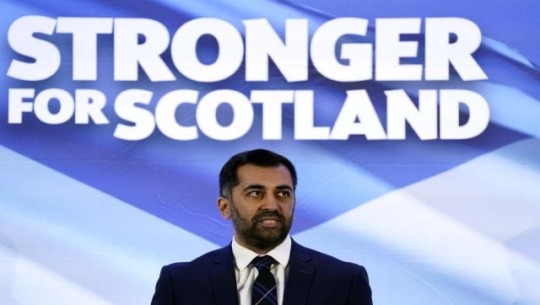
The road ahead for Humza Yousaf is not easy. But he has vowed to take the country forward. “We will be the generation that delivers independence for Scotland,” he said after his win. AP
Challenges Ahead of Him
The road for Humza Yousaf is going to be tricky and full of roadblocks. He faces the monumental task of bringing together a party that has been driven apart by a bitter leadership contest.
Yousaf will also have to prove himself and that too quickly. While Sturgeon enjoyed positive approval ratings, her government did not. An Ipsos poll found that across a number of policy issues — including on health care, education and standard of living — “more people think that the Scottish government is doing a bad job than think they’re doing a good job.”
As The Politico reports, there are some in his party itself who question whether he’s up to the job, given his struggle to avoid negative headlines in previous Cabinet jobs. “Nobody — including his backers — looks at Humza and says ‘there’s our leader for the next 10 years’ or even that he’ll win independence,” an SNP adviser was quoted as telling The Politico.
It is left to be seen if he sinks or swims. But for now it’s interesting to see that the three leaders of Britain, Scotland and Ireland all have leaders of South Asian origin — Britain’s Rishi Sunak, now Scotland’s Humza Yousaf and Ireland’s Leo Varadkar.
0 notes
Text
Weighing options
Just because something is procedurally possible doesn’t mean it is either practicable or politically sensible. What I’m seeing here is almost a rerun of the ‘supermajority’ farce started by Alba Party in the run-up to the 2021 Scottish Parliament election. The ‘supermajority’ nonsense took something that is procedurally possible – a two-thirds majority of MSPs can dissolve the parliament – and…
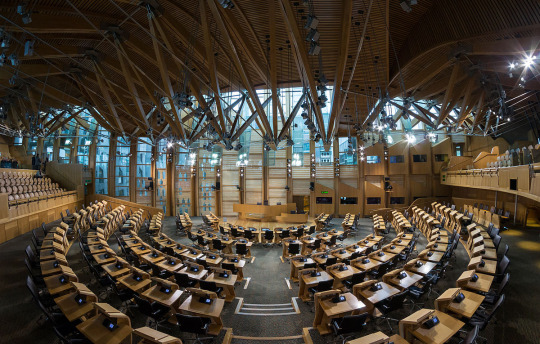
View On WordPress
0 notes
Text
Weighing options
Just because something is procedurally possible doesn’t mean it is either practicable or politically sensible. What I’m seeing here is almost a rerun of the ‘supermajority’ farce started by Alba Party in the run-up to the 2021 Scottish Parliament election. The ‘supermajority’ nonsense took something that is procedurally possible – a two-thirds majority of MSPs can dissolve the parliament – and…

View On WordPress
0 notes
Text
📢 Hey Scotland-based people, the Scottish Parliament election is coming up on Thursday 6th May 2021.
If you’re not already registered, pls register to vote! To vote in Scottish Parliament elections, you must be registered to vote at an address in Scotland, be aged 16 or over on the day of the election (16! not 18) and not be legally excluded from voting. If you’re 15 now but will be 16 by May 6th, you can still register to vote and vote.
You must also either be a British citizen, an Irish citizen, or a citizen of another country living in Scotland who has permission to enter or stay in the UK, or who does not need such permission (so if you’re from another country outside of the UK countries and are living in Scotland, you can vote in this election). People with leave to remain, indefinite leave to remain, pre-settled status and refugee status are all included in the voting franchise.
At the time of writing, in-person voting is still going to be an option. Lots of people are opting for postal votes though, naturally, as due to the current circumstances it will be the safest way. The deadline to apply for a postal vote is 5pm on Tuesday 6th April. Note, you have to register to vote before applying for a postal vote. 👍
#covid mention#signal boost#thankyou aye for doublechecking this post :)#if anyone the post applies to/could apply to is confused or concerned about anything related to this just lmk and will try to help :)#caledonia's been everything
394 notes
·
View notes
Text
Scottish Election Results 2021
As regular followers will know, Algy is celebrating Scotland here on @lovefromalgy this weekend, on the occasion of a historic Scottish parliamentary election.
So it is only appropriate that he shares the results of the election, now that the final numbers are known. But first, a word or two of explanation:
Scottish parliamentary elections have an unusual system of proportional representation, deliberately designed to prevent an overall majority if at all possible. Elections therefore produce results in a very different pattern to those for the UK General Elections to the parliament in Westminster, which operate on a first-past-the-post system.
In Scotland we have two ballot papers - one for consituencies, where voters select a single candidate and the winner is the candidate with a simple majority - and one for regional lists, where voters select one party, and not an individual candidate, and several winners for each region are calculated by a complex system of proportional representation. If a party gets a majority of votes on the regional list ballot BUT has already won a large number of consistuencies in that same region, they are then heavily discounted and weighted against when assigning seats in parliament from the list. So, a party may win a large proportion of votes on the regional ballot paper and still not get a single seat on the regional list. In this election, for example, the SNP won 40% of the vote share on the regional list ballots, but was only assigned 2 out of the total of 56 regional list seats in parliament.
The SNP are represented by the colour yellow in the graphics below. If the election had been held according to the UK General Election electoral system, the SNP would therefore have a massive and overwhelming majority in their fourth term at Holyrood. However, Algy concedes that Scotland’s curent system, although flawed, is indeed a great deal fairer than first-past-the-post, although on this occasion it has not quite assigned seats in proportion to the numbers of votes cast.
Note about the SNP: for the avoidance of any confusion or doubt - especially in the minds of friends overseas for whom the frequently used term “Nationalist” may indicate a far-right party - Algy would just like to clarity that the SNP (that’s the Scottish NATIONAL Party NOT the Scottish NATIONALIST Party as Boris Johnson has often called them...) is a left-wing party with a broadly progressive agenda. It is the National party because it wishes to reinstate an independent Scottish nation, but it has nothing whatever to do with fascism or any kind of right-wing ideology.
Constituencies
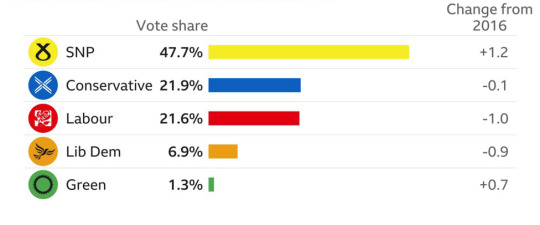

Seats in Scottish Parliament
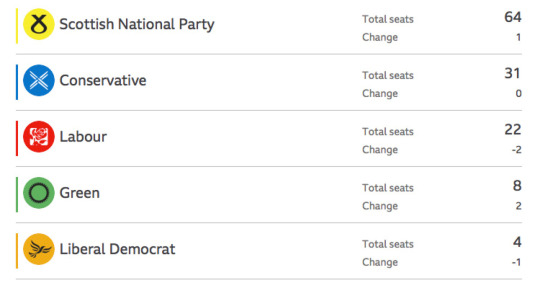
Regional List
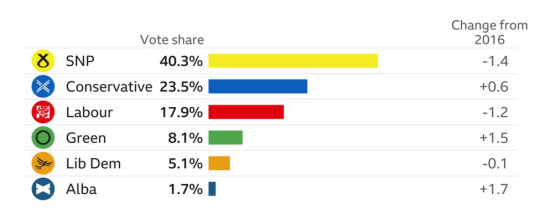
Turnout
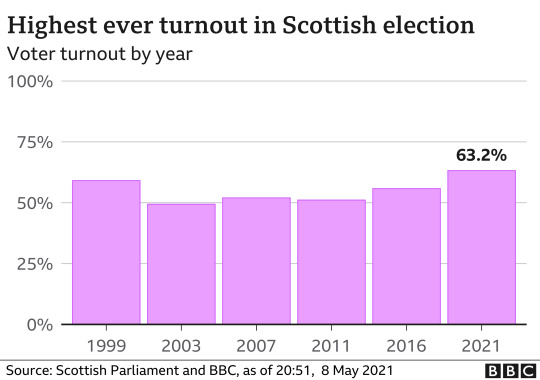
#adventuresofalgy#Scotland#Scottish election 2021#Scottish election results#snp#scottish national party#Scottish nation#scottish independence#ayeforscotland
23 notes
·
View notes
Text
Fascism begins with political violence on the streets. In 1922, Mussolini ordered his supporters to march on Rome and threaten to overthrow the democratic government.
In the early 1930s gangs of Nazis and communists fought for control of Berlin’s streets. In 1999, a mysterious bombing campaign, that killed dozens of people and destroyed apartment blocks in Moscow and Volgodonsk, allowed Vladimir Putin to take power by posing as a strongman, who could keep Russians safe.
The UK is experiencing its own version of fascistic violence.
As befits the modesty of this country we have a quintessentially British version of fascistic intimidation. Nothing too grand or showy is on display. Nevertheless, violence and the threat of violence is successfully perverting the course of democratic life.
In the chaos of yesterday’s attempt by Parliament to pass a motion on the war in Gaza it became clear that MPs were not frightened of the party leaders and whips but of Islamist terrorism and mobs at their homes and offices.
Paul Bristow the Conservative MP for Peterborough was clearly scared. He wanted to back a motion from the Scottish National Party, which was the most pro-Palestinian motion on offer.
But procedural infighting led to it being withdrawn.
It sounded as if he wanted to support the SNP motion because of a desire to divert men making rape and death threats.
People had misrepresented his position, he said. ‘Someone suggested on social media that they would show my wife a real man. Someone else suggested that they would attack me and my family. Already today, Labour councillors in my patch are tweeting that I have not supported a ceasefire’
He wanted to vote for the Scottish National party motion on a ceasefire but could not. He asked the speaker, ‘Can you advise me how I can make my constituents clear of my views, given that I was not able to vote?’
There’s a saying knocking about in the Jewish community: ‘it starts with the Jews but it never ends with the Jews’. It’s the modern version of Pastor Martin Niemöller’s refrain that ‘first they came for…’
It ought to be possible in theory to deplore the brutality of the Israeli assault on Gaza without bringing anti-Jewish racism and violence to the UK.
But as the Jewish self-defence group the Community Security Trust pointed out there was an upsurge of antisemitic attacks within hours of the Hamas attack on Israel on 7 October.
They weren’t protests against the Israeli invasion of Gaza. It had not then begun. But a celebration of a pogrom.
Inevitably, the first UK politician to suffer was Mike Freer, the pro-Israel Conservative MP for the Jewish constituency of Finchley and Golders Green. He said he was resigning from politics at the next election because of ‘a constant string of incidents’ including death threats.
He revealed that, before the Gaza conflict, Ali Harbi Ali, the Islamist who was to go on to murder the Southend West MP Sir David Amess in 2021, had tried to find him.
But if people thought hatred would be confined to Jews, they did not understand the reach of antisemitic conspiracy theory.
As I and other veterans of the wars on the Labour left can tell you, the concept of Jewishness is now unmoored from reality. It can’t be contained. Step away from left-wing orthodoxy and the gentile becomes a Jew and is denounced as a ‘Zionist’, even if they have never visited a synagogue in their life.
Anyone can be Jewish these days, and anyone can be marked as a target of conspiratorially driven violence.
The reason why Labour broke with all precedent and forced the Speaker to allow its motion was that it was frightened for its politicians. If Labour MPs did not have a motion they could support, the left, the SNP, and political Islam could paint them as standing by and abstaining as the body counted mounted in Gaza.
There have been demonstrations outside the offices of the London Labour MPs Vicky Foxcroft and Rushanara Ali.
On the Tory side, protestors targeted the home of Tobias Elwood while his children were in the house.
I don’t want to be melodramatic. Compared to fascist marches on Rome and bombs in Russian apartment blocks, the violence in the genteel UK is not much to look at.
But it is not nothing.
When the British public see the results of votes on Gaza, should they believe that their politicians are voting out of conviction or out of fear?
Lucy Powell, the Labour leader of the House of Commons, spoke in Parliament today of the ‘long shadow’ of violence being cast over political life.
MPs do not like talking about it for fear of attracting attention to themselves and their families, she continued. They do not want to come across as whingers.
But they worry about the targeting of their homes, and believe the intimidation will get worse during the election campaign.
Lethal political violence is real. It comes not just from the Islamists who killed Sir David Amess but from the far right, which killed Jo Cox in 2016.
Yet until they turn lethal, the initial threats that so alarm politicians can seem trivial.
We have the right to protest. Demonstrating outside a politician’s home on a public highway is barely a crime: it is a breach of the peace if it is anything at all. Meanwhile everyone in public life experiences foul abuse on social media.
But do not diminish it. A little fear goes a long way, and as Lucy Powell told the Commons, ‘Unfortunately, it is starting to affect people’s decisions and their behaviour’.
Unless the police and courts become considerably more authoritarian than they are today we will see two consequences.
Sensitive people will back out of politics. You might want to say that MPs should butch-up and grow a pair, but be careful what you wish for. Do we really want to be represented by a succession of preening tough guys (for most would be guys) who don’t care about the safety of their families or even have families?
The other consequence is perfectly obvious. It won’t just be Islamists and their allies who use the threat of violence. If the threats work, and they clearly do, for they persuaded the Speaker to tear up the rules yesterday, why should not others follow fascistic tactics?
0 notes
Text
The underrepresentation of women in worldwide politics
From suffragettes to modern day feminists, women have fought long and hard for their right to vote and hold office.
Progress is clear. As of 2015, women in every country in the world have the right to vote; the first nation to grant female suffrage was New Zealand in 1893, and the last country was Saudi Arabia in 2015. Today, several countries are led by women and some countries, such as Finland, also have a cabinet dominated by women. But progress is slow and uneven. Women are still underrepresented in politics, parliaments and public life. Women make up less than 23 percent of parliamentarians, while men make up more than 77 percent, leaving a more than 50 percent gender gap. Attitudes towards female candidates are still largely characterised by deeply ingrained stereotypes, and political opponents will often use those stereotypes to question women’s capabilities.
Women are putting themselves forward for elections more and more, yet their numbers are still far behind those of men. Why is this the case? Even though it is widely accepted that development, peace and prosperity in societies cannot be achieved without half of the world’s population, women continue to be sidelined in decision-making. This is because the stigma against women in politics is still alive and well. They continue to face structural, socioeconomic, institutional and cultural barriers.
Women of colour made historic gains in the 2018 election, but remain far behind white women and certainly behind white men, who dominate politics. In the House of Lords, the upper chamber of the UK’s legislature, not only are 27 percent of peers women, which is significantly lower than the Commons and up by only one percent since 2018, only two percent of all members of the House of Lords are women of colour. And if that isn’t enough, there are no women of colour in the Scottish Parliament, the National Assembly for Wales or the Northern Ireland Assembly. These statistics take a closer look at this gender-imbalanced picture, revealing just how slow progress is. Rooted in patriarchal norms and traditions, the consequences are far-reaching with detrimental, negative consequences on the personal, economic and future well-being of women and girls, their families and the community at large.
Despite increases in the number of women at the highest levels of political power, widespread gender inequalities persist. After last year’s spike of 21.3 per cent of women holding ministerial portfolios, progression has slowed—with just a small increase to 21.9 per cent in 2021. Data also reveals that the number of countries with no women in government has increased, bucking a downward trend seen the last few years. These gross facts are stark reminders of the pervasive and persisting nature of gender inequality. It is essential that this changes because women’s representation is necessary to ensure that democracy functions as effectively as possible.
To quote IPU Secretary General Martin Chungong, This year’s growth in the number of women in political decision-making is just not good enough. Especially when you consider that 70 per cent of health, care, and service workers during this pandemic are women. It’s up to all of us, both men and women, to keep pushing for greater representation of women in politics. We have the tools to make it happen. What we need now is the political will.
4 notes
·
View notes
Text
Rishi Sunak has been urged to push through new rules to block anyone convicted of a sexual offence from standing to be an MP before the next election.At least six MPs have lost their seats because of alleged sexual misconduct since the 2019 general election, and 10 MPs have been suspended from their parties pending investigations.
While all political parties have their own procedures for vetting MP hopefuls, politicians and unions believe formal rules to block relevant candidates will make it easier to “weed out the bad apples”.A former minister said: “I can’t believe this has to become formal policy, but history shows how bad the working environment in Westminster has become for this to be needed. Working standards for people on the estate are at a pretty low bar.”The Prospect union said Sunak should introduce the measures before the next election, as well as accelerating the timetable in risk-based exclusion measures. “If they won’t, Labour should do so as a matter of urgency if they win the next general election,” said Mike Clancy, general secretary of the union.
It comes as the Scottish parliament is expected to vote through rules to bar anyone convicted of a sexual offence and subject to a restriction order from standing to be an MSP or as a councillor.Ministers in Edinburgh published plans last year to cover council elections and said they believed it was logical to extend these controls to candidates for Holyrood, which has 129 MSPs, at the same time.Like councillors, MSPs were in a position of power and authority and often dealt with vulnerable constituents, an official briefing paper said. The controls are due to be included in the new Scottish elections (representation and reform) bill introduced last month.“The roots of this move are grounded in both protecting the public in personal encounters with elected representatives and also a more general reputational concern based on trust and confidence,” the briefing paper said.While no MSP at Holyrood has been jailed for sexual offences, and none have been prosecuted, there have been a series of controversies over sexual misconduct by MSPs, with some losing ministerial posts.Scottish ministers point out the current rules allow people to stand for Holyrood if they were jailed for less than a year: that could allow some sex offenders to do so. The rules for council elections are tougher, barring anyone with a sentence of three months or greater standing for election.A ban on sex offenders standing in council elections, including mayoral elections, came into force across England in 2022 and Wales in 2021, when a similar ban on sex offenders standing for the Senedd in Cardiff came into force.There is no specific bar on sex offenders standing for councils in Northern Ireland, other than a blanket ban on anyone with recent prison sentences of three months or more. No specific bar is in place for Stormont elections as its elections are governed by Westminster and are similar to those for the Commons.
In December, the House of Commons commission published proposals for a “risk-based exclusion policy” to bar MPs who have been arrested for violent or sexual offences from coming on to the parliamentary estate.But there is no policy that stops anyone convicted of a sexual offence from becoming an MP.Sandy Brindley, the chief executive of Rape Crisis Scotland, said: “Constituents should have the same protections in relation to MPs as they would any other elected representative, across the whole of the UK. It is the least that constituents should be able to expect, but it’s quite astonishing it isn’t in place already.”The Liberal Democrats said they would “carefully consider proposals in this area, including bringing the rules for parliamentary candidates in line with those that exist already for those standing to be local councillors”.Labour has not clarified if it would roll out such measures in government, if the Conservatives fail to do so. But Lucy Powell, the shadow Commons leader, said “the government should stop dragging thei...
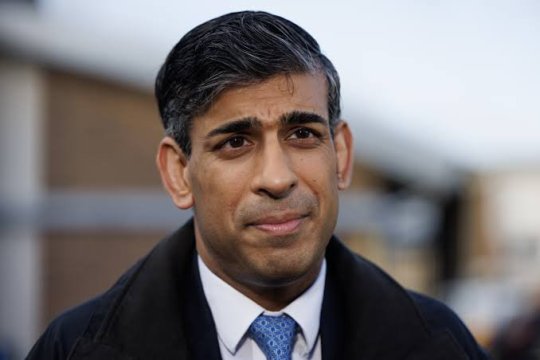
View On WordPress
0 notes